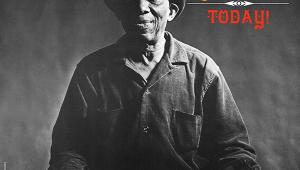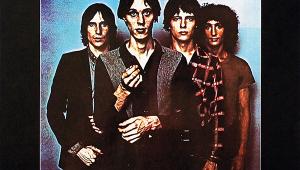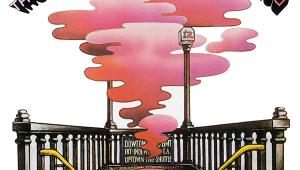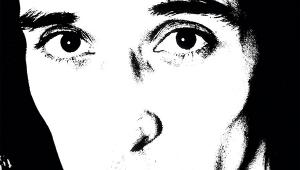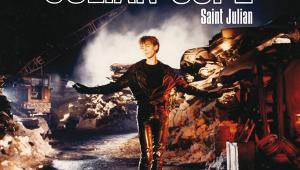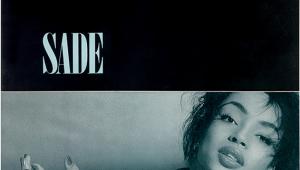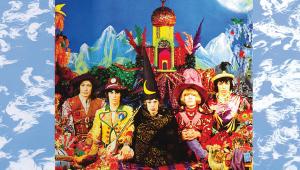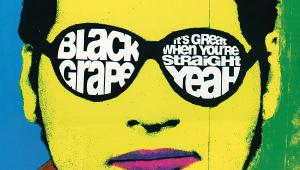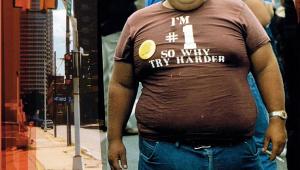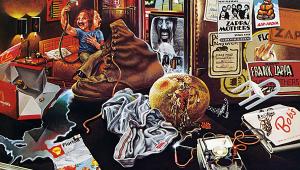Yes: Tales From Topographic Oceans

Chicken vindaloo, pilau rice, six papadums, bhindi bhaji, Bombay aloo, oh, and a stuffed paratha. Yummy, right? Rick Wakeman certainly thinks so, tucking in with gusto. Thing is though, he’s not in a restaurant or at home with a takeaway, he’s sat behind a phalanx of keyboards on stage at the sold-out Manchester Free Trade Hall. And while he enjoys his nosh, Yes – the band he’s part of – is plodding through their Tales From Topographic Oceans, a newly released double album – one track per side – which his bandmates have insisted on playing in its 85-minute entirety.
This is November 1973 and even by the overblown musical standards of the era, TFTO is what you might, being generous, call an epic. ‘There were a couple of pieces where I hadn’t got much to do’, Wakeman recalled later, ‘and it was all a bit dull’. This I can vouch for, having hitch-hiked to Bournemouth Winter Gardens to witness an earlier date on the tour. I’m 17 and in awe of Yes, thanks to their exquisite previous LP, 1972’s Close To The Edge, but I leave with my mates to go to the pub about halfway through the TFTO show.
Food for thought
Anyway, back to the grub. Unbeknownst to the audience, Wakeman has a keyboard technician called John Cleary who lies underneath the Hammond organ throughout the set to fix anything that might go wrong with the volatile equipment and, just as importantly, hand Wakeman the booze that keeps him going during the lengthy show.
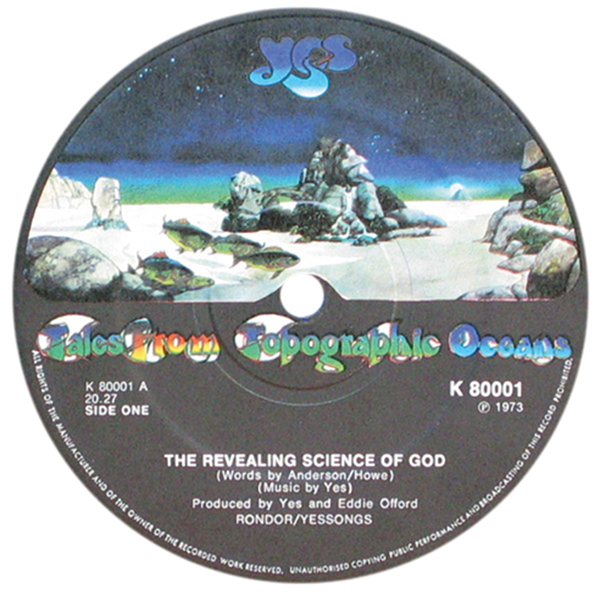
On this particular night Cleary asks Wakeman what he’s doing later on. Wakeman says he fancies a curry and Cleary asks what’s he gonna order. Wakeman details his choices and Cleary sidles off stage. About half-an-hour later, in the middle of yet another intricate guitar solo from Steve Howe, Wakeman looks down to see Cleary under the Hammond holding up foil trays of Indian goodies – he has mistakenly thought his boss was in need of a curry right now. Wakeman, deciding the grub might well go cold and spoil, decides to pile in.
Not long after this incident, Yes get the hint and drop the third piece of TFTO, then the second. Wakeman, now smugly claiming he said it was crap all along, tells one journo, ‘It’s like a woman’s padded bra. The cover looks good but when you peel off the padding there’s not a lot there’.
Progs ’n’ Punks
Ah, the cover. Fronted by one of those rococo Roger Dean creations so beloved of hippies high on hallucinogens, Tales From Topographic Oceans is the prime historical example of why punk had to happen. Other prog elders including Jethro Tull and Pink Floyd shared the scorn heaped upon the genre’s pompous self-indulgence, but a special vitriol was reserved by the pogoing hoards for Yes and the bloated TFTO in particular. It doesn’t take a genius to see why.
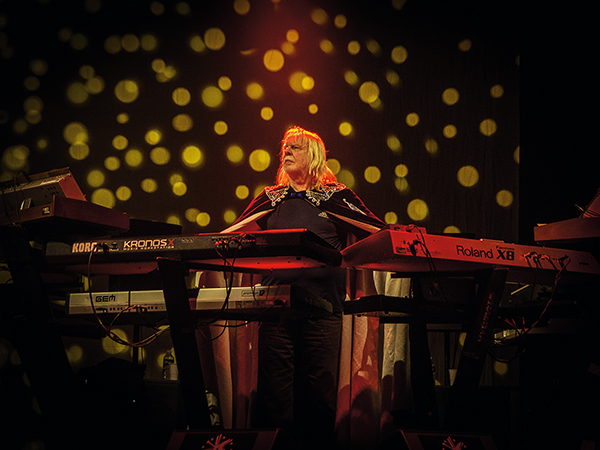
The omens were there even before the project really began to take shape. Some of the band wanted to ‘get it together’ in the country for rural, peaceful vibes. Vocalist Jon Anderson wanted to record at night under a tent in a forest with electrical generators buried in the ground so they would be inaudible, a notion dismissed as lunacy by his bandmates.
Others had a hankering to stay in town where the best equipment was. So what they did, comically enough, was reach a compromise. They worked in London’s Morgan Studios, which boasted a 3M M79, the UK’s first 24-track tape machine, but had the space decorated like a farmyard! Drummer Alan White set up his kit inside a picket fence and facing a cardboard cow. Wakeman’s keyboards were balanced on hay bales next to potted plants. Producer Eddy Offord later recalled that it wasn’t long before the cow was covered in graffiti and the plants had died, saying ‘that just kind of sums up the whole album’.
Then there was the material, inspired by Jon Anderson’s leafing through Paramahansa Yogananda’s Autobiography Of A Yogi. ‘I got caught up in the lengthy footnote on page 83’, he confided in the sleeve notes. This was where Yogananda – an Indian meditation guru based in the US, and quite the rage at the time – described four Shastric texts as ‘comprehensive treatises that covered every aspect of religious and social life, and the fields of law, medicine, architecture, art’...
Long in the tale
Got the gist? Good. The album writing process saw Anderson and Howe sketching out the four tracks before the band spent eight weeks in Manticore Studios in Fulham developing them into something fit to record. At this point alarm bells began ringing. The tracks were of a length that they either had to be edited to fit a single album or developed to suit a double. After much wrangling, Anderson prevailed and the band proceeded to ‘pad out’ the songs with improvisation.
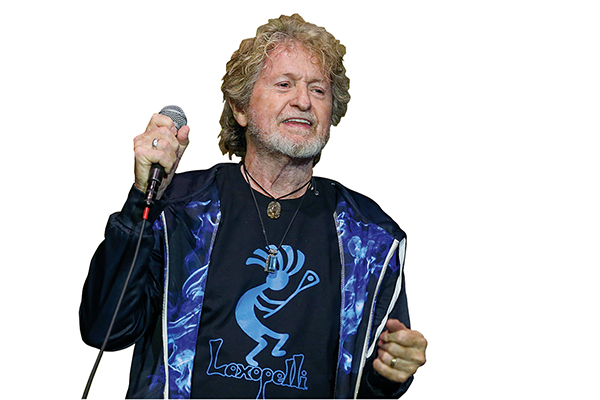
The sessions at Morgan were not exactly harmonious and Wakeman, disillusioned with all the noodling, spent a fair bit of time boozing and playing darts with Ozzy Osbourne, whose Black Sabbath were recording in an adjoining studio. Once the work was complete, even fate tried to play its hand in derailing its release. Upon leaving the studio, Eddy Offord propped the completed tapes on the roof of his car and drove off. Anderson had to snatch them from the path of an oncoming bus.
When it was released in December 1973, buyers were faced with this quartet of tracks: ‘The Revealing Science Of God (Dance Of The Dawn)’, ‘The Remembering (High The Memory)’, ‘The Ancient (Giants Under The Sun)’ and ‘Ritual (Nous Sommes Du Soleil)’. What can I tell you? Beware the bracketed song title!
What does it sound like? Hand on heart, dear reader, I’d hoped that revisiting TFTO might occasion some kind of reappraisal, an epiphany of previously undiscovered riches that would expose long-held and deeply ingrained critical opinion as just prejudice born of its era’s desperation for change. But, nope, it is as lumpen and aimless as claimed and, in going there so you don’t have to, I fell asleep... twice.
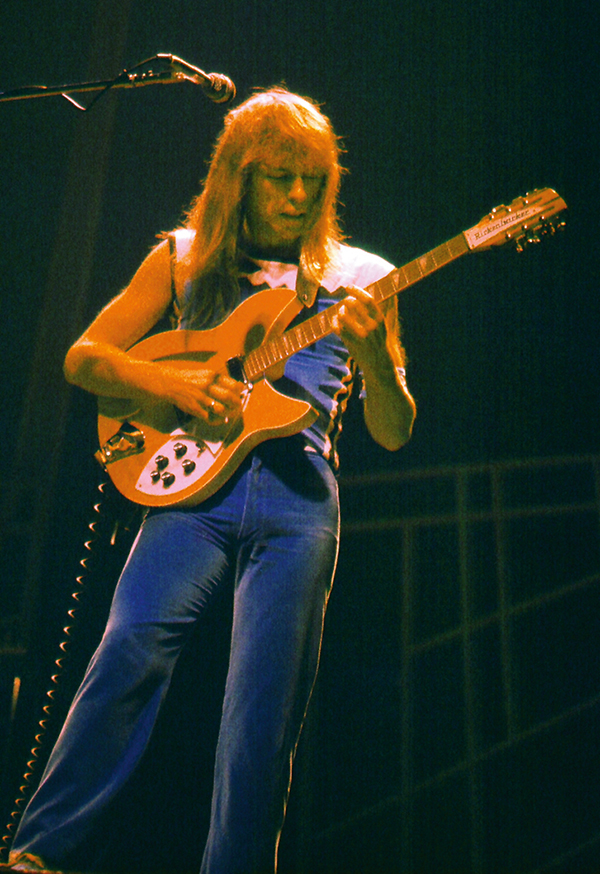
Looking back, Wakeman’s opinion is that there are ‘some good moments but it’s like wading through a cesspool to get to the water lily’. He quit the group when the tour ended and has dined off the scoffing story ever since. ‘The rest of the band weren’t too impressed at the time’, Wakeman said recently, ‘although in later years they did laugh about it. And I tell you what... it was a bloody nice curry!’.
Re-Release Verdict
Released by the US classic rock-focused label Friday Music, and remastered from the original analogue tapes by label founder Joe Reagoso, this 180g reissue of Tales From Topographic Oceans was recently repressed having first debuted in 2011 [FRM 2908]. Devoted Yes-heads will want to compare it to the Atlantic/Rhino remaster of 2013 [8122796553]. UK label Panegyric issued a Blu-ray/3CD boxset, with stereo/surround mixes [GYRBD80001], in 2016. HFN
